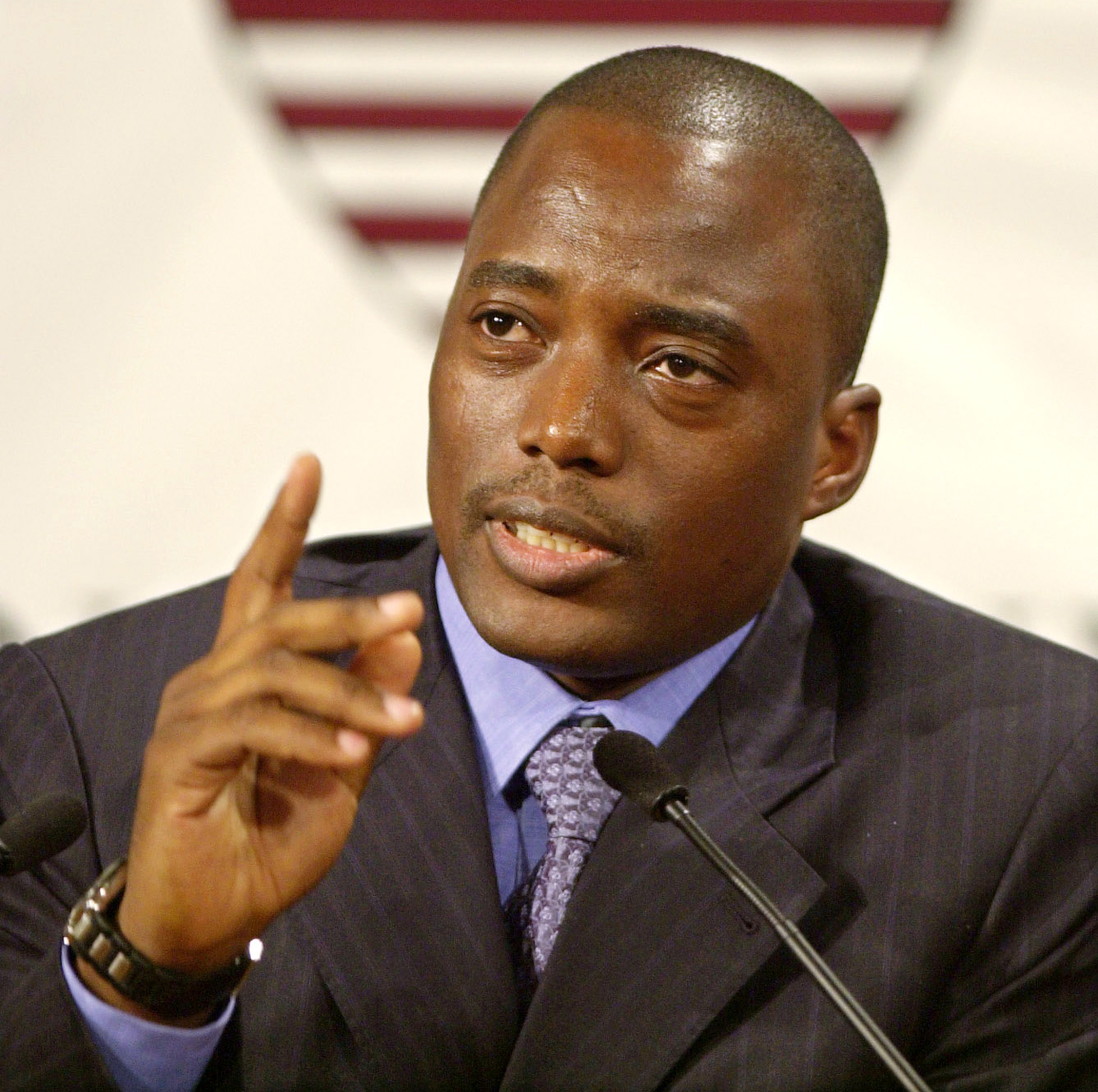Kabila, Joseph (1971?-…), was president of the Democratic Republic of the Congo (DRC) from January 2001 to 2019. He succeeded his father, Laurent Kabila, who was assassinated during a period of conflict with Congolese rebel groups. In July 2006, Joseph Kabila won Congo’s first multiparty presidential election since 1965. He was reelected in November 2011.

Kabila was probably born on June 4, 1971, in the eastern part of the DRC, which at that time was called Zaire. He attended schools outside of the country, spending most of his time in Tanzania. In 1996, he joined his father’s rebel movement, the Alliance of Democratic Forces for the Liberation of Congo-Zaire. In 1997, the movement overthrew the government of Mobutu Sese Seko, who had ruled since 1965, and renamed Zaire the Democratic Republic of the Congo. Laurent Kabila sent his son to China for military training at the National Defense University in Beijing. Joseph Kabila later served as army chief of staff prior to becoming president.
In December 2002, Joseph Kabila’s government signed a power-sharing agreement with the country’s two main rebel groups and with political opposition groups. The agreement ended most of the fighting and led to Congo’s eventual adoption of a new constitution. Kabila’s willingness to seek peace and share power represented a shift from his father’s style of government. Kabila worked with the United Nations and other international organizations on matters of political reform. He also sought to restore the DRC’s economic growth, which had lagged after years of corruption, mineral exploitation, and civil and military strife.
Kabila caused controversy in 2016 when he refused to step down at the end of his second term in office. According to the DRC’s constitution, presidents may serve no more than two terms. The country’s Constitutional Court ruled that Kabila could stay in office if a presidential election scheduled for that November did not take place. Kabila claimed that the government needed more time to prepare, and the government later announced that the election would be delayed until 2018. In January 2019, Felix Tshisekedi was declared the winner after votes from the presidential election held on Dec. 30, 2018 were counted. Kabila stepped down after 18 years in office. However, other candidates claimed Tshisekedi’s election was fraudulent. They claimed that Kabila had conspired to rig the election and install Tshisekedi as a hand-picked successor.
See also Congo, Democratic Republic of the; Kabila, Laurent Désiré.
